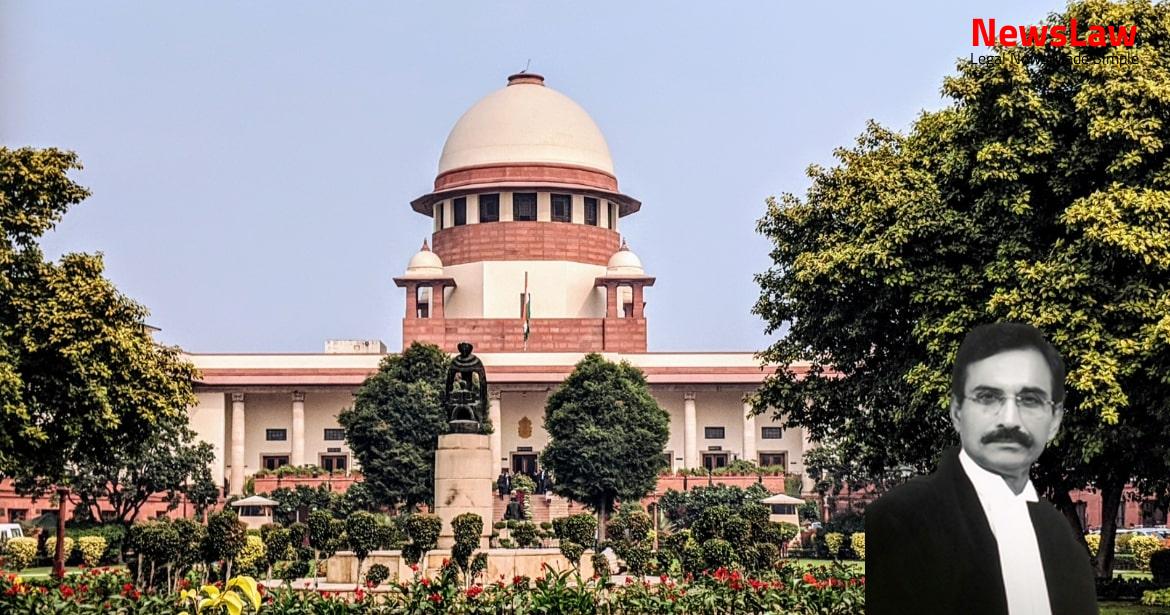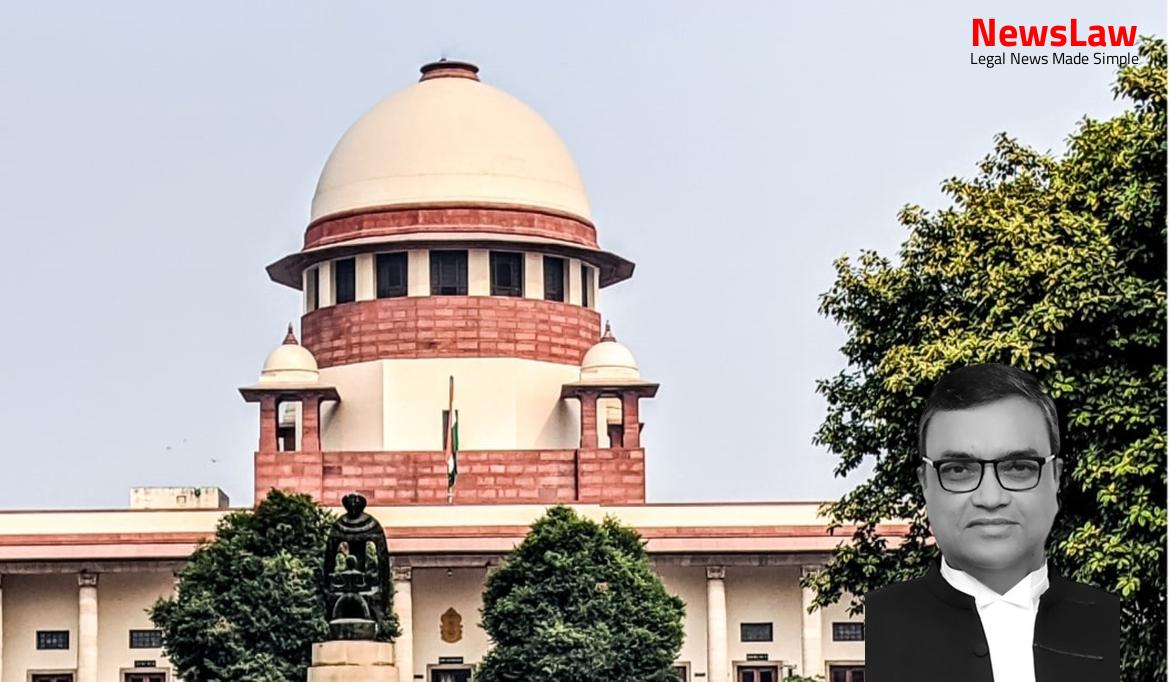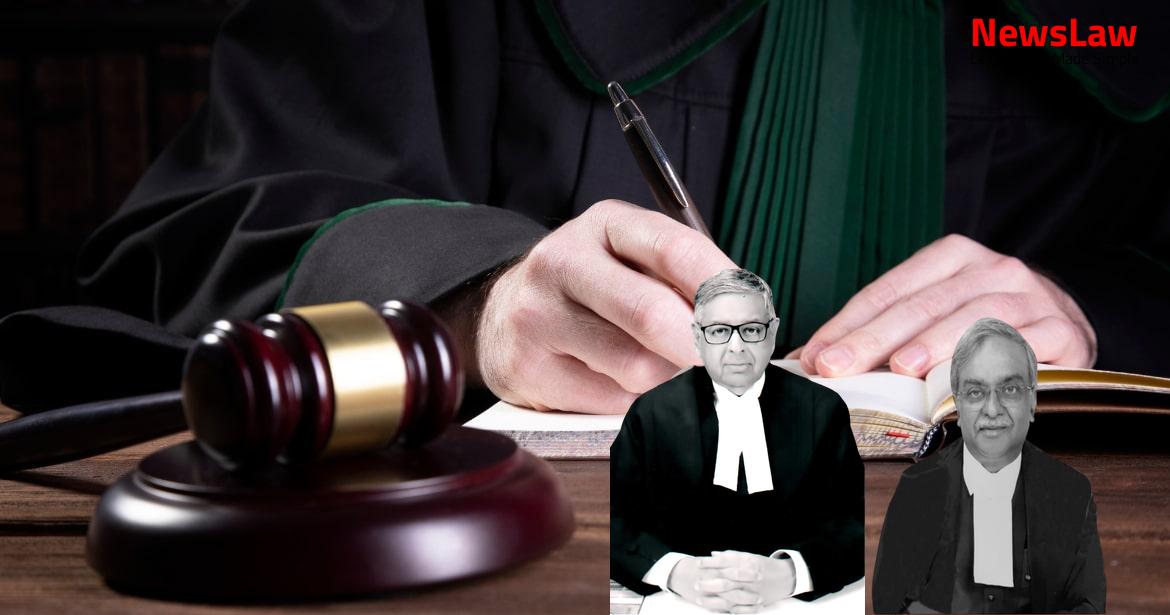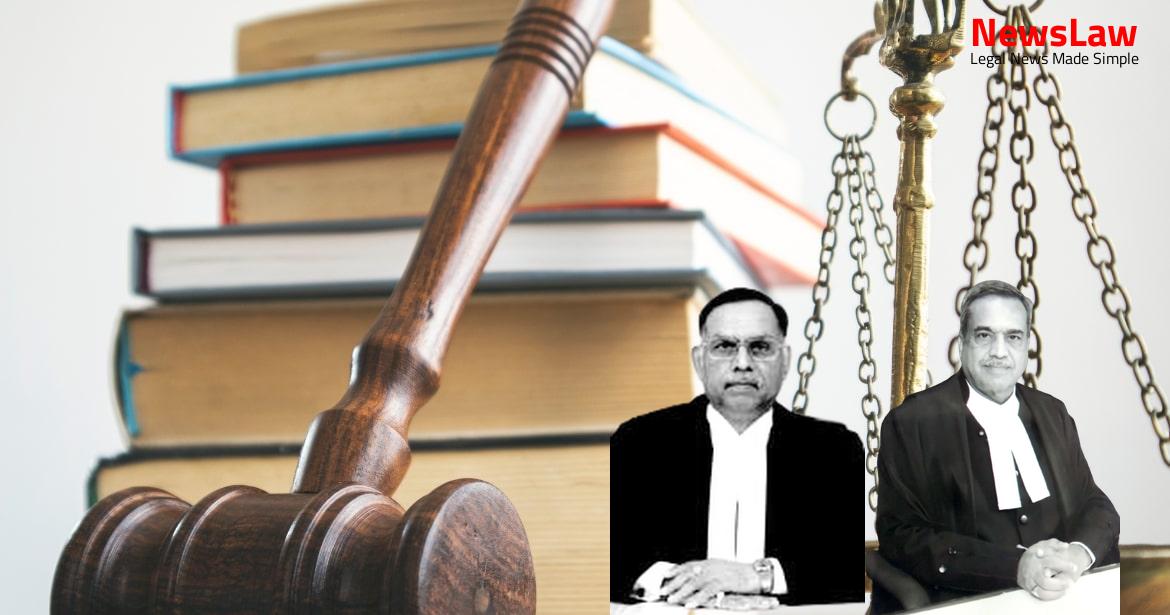Delve into the complexities of merit-based appointments in the public service sector as analyzed by the court in a recent case. Discover how the court deliberated on the importance of following recruitment rules and upholding constitutional provisions while making appointments. Gain insights into the legal considerations that shape public service recruitment processes.
Facts
- The case involves a dispute over the selection process for the post of Sub-Inspector of Police in Jammu & Kashmir.
- Multiple rounds of litigation have taken place regarding the selection process, involving redrawn merit lists and appointments.
- 47 candidates initially selected were removed from service due to a redrawn merit list in 2004.
- 22 candidates were appointed in 2008, despite being lower in the redrawn merit list, leading to further litigation.
- The High Court allowed writ petitions by candidates higher in the order of merit, stating they had a right to fair consideration for appointment.
- A judgment in 2010 directed fair consideration for higher merit candidates, leading to appeals and a subsequent judgment in 2013 setting aside the earlier decision.
- Overall, the case involves disputes over redrawn merit lists, appointments based on merit, and fair consideration for candidates.
- The unsuccessful candidates challenged the selection process through SWP No. 567/2000, arguing that the select list was prepared Province-wise, which they claimed was not legally permissible.
- They contended that the select list should have been prepared for the entire State of Jammu & Kashmir, treating it as a unit due to the post of Sub-Inspector being a State cadre post.
- Details from the record indicated that the last selected candidate from Jammu Province scored 56 marks, while the last selected candidate from Kashmir Province scored 50 marks.
- The 2nd respondent published the select list of 252 candidates Province-wise on April 23, 2000, separately for Jammu and Srinagar.
- This led to the initiation of the first round of litigation.
Also Read: Judicial Review of Answer Key in Teacher Selection Process
Arguments
- State wanted to retain 47 candidates initially ousted but conceding that only 22 vacancies available
- 22 candidates appointed as Sub-Inspectors not in redrawn merit list, violating recruitment rules and Article 14 of the Constitution
- No delay/laches in approaching court by present appellants, primarily aggrieved by the 22 candidates’ appointments
- Argument for fair consideration of appellants higher in redrawn merit list than the appointed 22 candidates
- Request to settle the issue and end the ongoing litigation pending for 8 years
- No financial implications as appellants not claiming back wages, over 100 vacant Sub-Inspector posts exist
- Cognate appeals following March 12, 2013 judgment brought before the court
- Order of May 10, 2007, merely recorded concession by the Advocate General of the State
- Adverts for Sub-Inspector post in February 1999 led to the current batch of appeals by appellants claiming unfair consideration
- Adherence to recruitment rules essential, appointments must follow the prescribed procedure to comply with Article 14 and 16 of the Constitution
- One appellant selected later for Sub-Inspector post pursuing February 2001 advert, appointed in February 2002
- Argument against the appellants’ claim of being senior-most 22 candidates left out from consideration for appointment
- Concerns for 47 ousted candidates who participated in state operations, expenses incurred on training, and continuous work since appointment in 2000
- Discrepancy in the statement about candidates securing 50 or more marks being deprived of consideration
- No grievance entertained for candidates belatedly claiming exclusion if not part of the initial 47 ousted candidates
- Observation that majority of appellants may not find their name in the queue if appointments strictly follow the redrawn merit list
- Counsel submissions and High Court’s judgment not requiring further interference by the court
- The order of the Court dated 10 May, 2007 was not under Article 142 of the Constitution, but based on concession made by the Advocate General of the State.
- The order reflected that it was passed on the basis of the concession made by the learned Advocate General.
- The submission that the appellants are higher in merit than the 22 candidates appointed by the 2nd respondent is not legally sustainable and violates Article 14 of the Constitution.
Also Read: Legal Analysis on Admission Denial and Seat Creation in Medical College Case
Analysis
- An appointment made illegally or irregularly cannot be the basis for further appointments.
- If posts in excess of those advertised are filled up in extraordinary circumstances, relief can be molded depending on the facts of each case.
- In a case where appointments were made in excess, the court refused to set aside the appointments due to the length of service (five years and more).
- Filling up vacancies over and above the number advertised is violative of fundamental rights under Article 14 and 16 of the Constitution. Selectees cannot claim appointments as a matter of right.
- Even if appointments were made erroneously or by mistake, it does not confer the right of appointment to another person.
- The State cannot be forced to perpetuate a mistake under the writ jurisdiction of the High Court.
- Candidates with less than 50 marks were eliminated from consideration in the initial phase of the controversy.
- 22 candidates challenged had over 12 years of service and experience in the field.
- The subsequent selection process for the post of Sub-Inspector took place in 2001.
- A concession was made by the Advocate General to bring quietus to the long-standing litigation in courts.
- It was noted that appointments should ideally follow merit-based selection, however, in exceptional cases adjustments may be made to resolve ongoing litigations.
- The government’s intention to retain the appointed candidates was based on their years of service, training, and involvement in critical operations.
- A statement by the Advocate General led to the accommodation of the 22 applicants in the pending proceedings, resulting in the settlement of the appeal.
- While deviating from the merit list is generally not allowed, it was accepted in this case due to unique circumstances and to resolve the extended litigation.
- The continuation of the 47 candidates under an interim order and the subsequent selection were considered within the context of the long-pending legal dispute.
- The actions taken by the State, based on concessions and settlements, were seen as attempts to conclude prolonged legal battles effectively.
- Equitable considerations were extended to the candidates who had worked in the position for a long period.
- The appointments of 22 candidates made by the 2nd respondent were found to be irregular and not in line with recruitment rules.
- Accepting the prayers of the appellants would perpetuate the existing illegality.
- The Court did not approve the High Court’s reasoning that the appointments were made under Article 142 of the Constitution for complete justice.
- Despite finding the appointments irregular, the Court chose not to disturb the appointment of the 22 candidates in question.
Also Read: Legal Analysis on Seniority Fixation in Contempt Petitions
Decision
- No substance found in the present appeals
- Appeals dismissed
- Pending application(s) disposed of
- No costs awarded
Case Title: PANKJESHWAR SHARMA Vs. THE STATE OF JAMMU AND KASHMIR (2020 INSC 673)
Case Number: C.A. No.-003904-003905 / 2020



